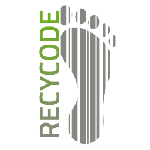Pitch
There's a data gap between product sale and recyclability. Turn data into knowledge and leverage social networks for better, local choices.
Description
Summary
Before people can reduce consumption, they must know what they consume. Though they receive bills and can track their meal calories, there is no automated way for consumers to track inventory.
With cashless payment system on the horizon and GS1, who is in charge of barcode registration, releasing its data to the public, consumers will soon have complete and lasting access to information about their products as soon as they make their purchase.
Category of the action
Reducing consumption
What actions do you propose?
- Use smartphone geolocation to offer best drop-off places for non-conventional recyclables;
- Enhance barcode information to include recyclability information;
- Nudge people in the direction of smarter consumption through data analytics and social comparison;
- Provide local opportunities for social gathering on actionable sustainable activities like community gardens, reuse workshops, etc.
Who will take these actions?
Recycode is a social enterprise that is culling support from Montreal's community to spearhead this initiative.
We have been gathering community backing during our city's écoHacks, our annual sustainability hackathons.
Businesses focused on their triple bottom line have been approaching us.
Éco-quartiers and Recyc-Québec, city and provincial institutions respectively, have been eager to see more of us.
Your support will launch our company into the global scene, because we are starting a conversation worth having.
Where will these actions be taken?
Montreal's ecosystem is ripe for a social innovation that benefits from the city's strong grassroots movement, its maturity in design, its drive for sustainability (recently picked as one of five hubs in UN's Future Earth project) and a surging IT startup scene. If our idea is to thrive, it will be here.
We plan on expanding internationally as soon as feasible.
How much will emissions be reduced or sequestered vs. business as usual levels?
Québec recuperates 65% of its recyclables.
Québec rejects 10-15% of recyclables that do come to its recycling facilities.
If the consumer is fully informed about recyclability to the level of each product part, we believe recuperation will increase, and rejection, decrease.
What are other key benefits?
Knowledge is power (for the people)
Better, fresher food for eating
Less clutter
Knowing what you own will soon become more important than having it at home, gathering dust until such time as you need it
What are the proposal’s costs?
We are at the pre-launch phase. We have a prototype.
Time line
Short term:
- Consumer has inventory of his products and is nudged towards smarter consumption behaviours.
Medium term:
- Consumer can trust our company to store the names of things s/he owns and to deal with the logistics of daily life.
Long term:
- As long as the things a person owns is virtually registered, that person can access it on-the-fly without the need to ever physically keep but the dearest, most personal things to them.
Related proposals
References
Open Ideo recently launched a challenged with Coca-Cola. See some of the winners:https://openideo.com/challenge/recycle-challenge/winning
